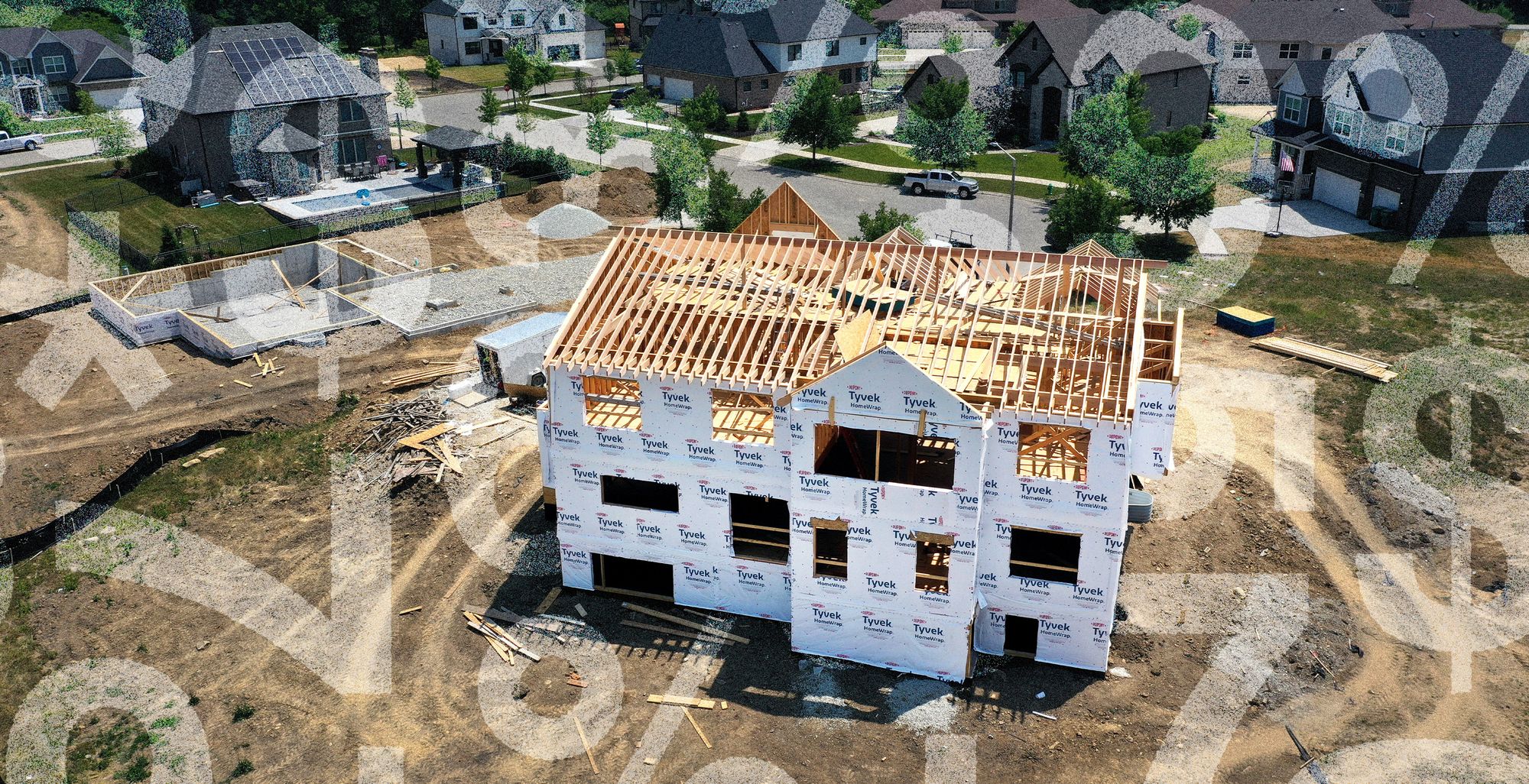Are you among those feeling frustrated due to the limited housing options available in the current market? If so, you might be eyeing the prospect of buying a new home directly from a builder. The appeal is clear: a brand-new, tailored-to-you home without the complications of bidding wars and costly renovations. However, as enticing as it might seem, there are important factors to weigh before taking the plunge into this new home venture.
**1. The Shift Towards New Homes**
In neighborhoods where homeowners are reluctant to give up their low-interest-rate mortgages and put their homes on the market, new homes have gained popularity. Recent trends show that new-home sales account for about 15% to 20% of all home sales, and in some markets, this number could even reach 30%, according to Lawrence Yun, chief economist at the National Association of Realtors. The gap in prices between new and existing homes has been narrowing, with the median sales price of new homes sold in June 2023 at $415,400, slightly above the $410,200 for existing homes. This makes the choice between new and existing homes less financially daunting than it has been in two decades.
**2. Incentives and Customization**
Builders, buoyed by the gains made during the pandemic, are now offering buyers incentives to sweeten the deal. These incentives can range from reduced mortgage rates to covering closing costs. Additionally, brand-new homes often come with customization options, allowing you to tailor certain aspects to your preferences. For example, Hayley and Tyler Dupee found their dream home in Ladson, S.C., enticed by incentives like a smart-home security system and window blinds. This level of personalization can be a deciding factor for many buyers.
**3. Consideration for Upgrades**
While moving into an existing home might seem faster, it’s crucial to weigh the potential expensive repairs and upgrades you could face. New homes often come with a higher price tag and the possibility of move-in delays due to construction timelines. However, this delay might be worth it for the added customization and potential future resale value. When considering upgrades, focus on essential systems like plumbing and electrical, as well as high-return areas such as the kitchen. Small choices, like opting for a slightly smaller kitchen cabinet, can add up to substantial savings without compromising quality.
**4. Making Informed Choices**
Navigating the world of new home construction requires careful reading and understanding of contracts. Builders often have the flexibility to substitute materials if needed, so be sure to read the fine print and understand where you have a say. Don’t assume that everything in the model home is included – ask about the appliances and finishes that come with your home. It’s also important to have extra funds set aside, as builders may adjust prices based on material costs. A contingency budget of around 10% to 15% is advisable.
**5. Preparing for Imperfections**
Despite the allure of a brand-new home, it’s wise not to expect perfection. While many new homes come with warranties that cover various issues, it’s crucial to conduct inspections at multiple stages of the building process. Pre-drywall inspections can catch problems that might not be apparent after the home is finished. Consider hiring an independent inspector to thoroughly assess the property. Investing between $280 and $400 for inspections can save you from dealing with issues like humidity, improperly installed features, or structural defects down the line.
Let’s work together to turn your dream of a new home into a reality. Reach out to me before your next visit to a new home builder, and let’s embark on this exciting journey with confidence. Your ideal new home is just around the corner, and I’m here to help you find it.


 Facebook
Facebook
 X
X
 Pinterest
Pinterest
 Copy Link
Copy Link
